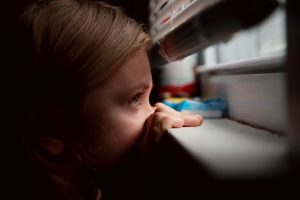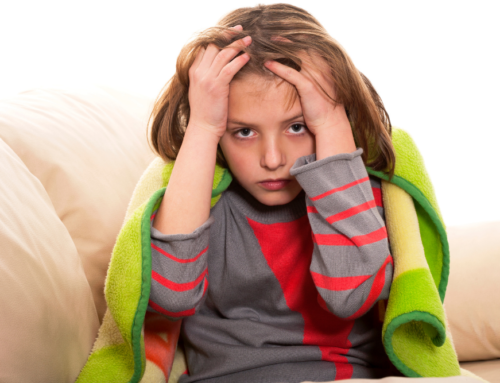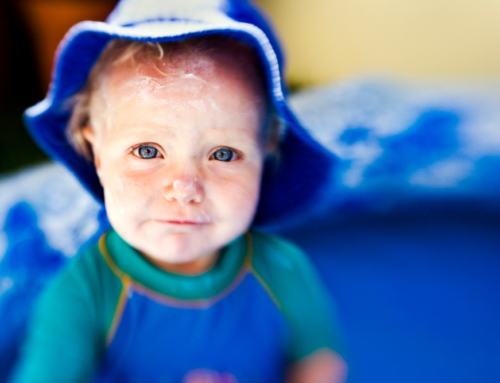The COVID-19 pandemic has left parents around the world in a challenging, unprecedented situation. In just a couple of weeks life as we know it has flipped upside down. The typical routines that have held families together have changed overnight due to school closings and social distancing policies. As if the pressures of parenting aren’t already high, now parents are expected to homeschool their children while managing work from home (if they haven’t been let go). Some parents are even on the front lines at hospitals, grocery stores and other essential businesses, risking potential exposure within their own homes. There is a lot going on and mental health for parents and their children is becoming a growing concern. As a parent, it’s important to protect your child’s mental health during the COVID-19 Pandemic. Here are a few ways keep your children mentally well and feeling safe.
Limit exposure to COVID-19 news media
It may be tempting to stream the news on TV all day in the home. For some, the constant feed of information can help ease uncertainty, but for most, including your children, it can become an incredible source of stress and anxiety, especially if your children do not understand what the news is saying. To decrease feelings of anxiety around the pandemic, it’s important to limit your child’s exposure to the news. Limit the amount of time the TV or radio is on, if possible. Mental Health Professional at Mountainland, Mary Gibson MSW, LCSW, recommends limiting news exposure to 30 minutes a day. “For younger children it may be best o turn the news media off all together.” To counter the negativity of the news cycle, try to find sources of good news to share with your kids as well. An example of this would be sharing stories of COVID-19 survivors who may have been high risk and healed despite the odds.
Reinforce positive messages
This may feel like a threatening time to your child. With the looming potential of a life-threatening disease that’s highly contagious, it’s important to talk to keep your children feeling positive. Remind them that if they were to ever get sick, you would take care of them and make sure the doctors did too. Let them know that children are in the low-risk category for infection and have a high likelihood of survival. Building a sense of control around hand washing, cleaning the house and wearing protective masks and social isolation will also help.
Social distancing does not mean social isolation
If your children are missing their friends, family members and teachers, remind them that this time is temporary, and things will get back to normal soon. Encourage them to connect with loved ones through the internet so they continue to feel connected to those outside the home. Thankfully, there are several incredible apps out there to virtually connect family and friends, such as Zoom, FaceTime, and HouseParty. These people have not left forever and will be back. Gibson suggests to “have a virtual game night to keep things interesting a fun. Charades, Pictionary, 21 questions, or a scavenger hunt are all games that work well for virtual hang-outs.” While several weeks may go by fast for adults, to children this quarantine may feel like a very long time. Be sure to remind your kids that things will return to normal soon, and they will be able to in-person play dates, “normal” school and visits with family again once it is safe to do so.
Build a structured routine
When the world is in chaos, it’s important to anchor yourself and your family to a structured routine for a sense of stability. “These are uncharted waters for all of us and kids may be especially sensitive to how much social distancing and stay-at-home orders have affected their day to day lives,” says Gibson. “Having a routine can help your child feel less nervous about the unknown. A good routine is any routine that you and your family can stick to, so keep it simple! Having just a few activities that happen around the same time each day can be comforting to your child.” And finally, be patient as you adjust to this new way of life. Transitions can take time and integrating a new routine will not happen overnight.
Model mental wellness and self-care
Modern families were not designed to be stuck in isolation 24/7 with each other. Without the kids going to school or parents heading off to work every day, families are now living in closed quarters without a “break” from each other. If you’re someone who enjoys occasional alone time or needs “space” every now and then, this time can be especially challenging.
With this, it is important to be understanding and forgiving with each other. “It is okay to admit to your child that you are having a bad day and apologize for parenting mistakes,” says Gibson. “Talk to your child about what you are doing to take care of yourself and let them see you doing it! Consider having a self-care show and tell in the evenings where everyone shares one or two positive things they did that day to take care of themselves.” There are several activities you could try to practice self-care. Going for a walk, calling a friend, reading a book or magazine, or taking a shower are just some examples of self-care activities that can help you recharge.
Gibson also recommends that parents “make time for your child to share their fears, worries, and concerns about COVID-19 and how it has affected their lives. Try to hold back on giving advice and instead make this a time where you simply let your child know you understand and that you are there for them.”
If you or someone you know is currently in a mental health crisis, call 1-844-493-8255 to talk to a licensed therapist or visit the Behavioral Health Urgent Care at Community Reach Center, located at 2551 W. 84th Ave in Westminster.



